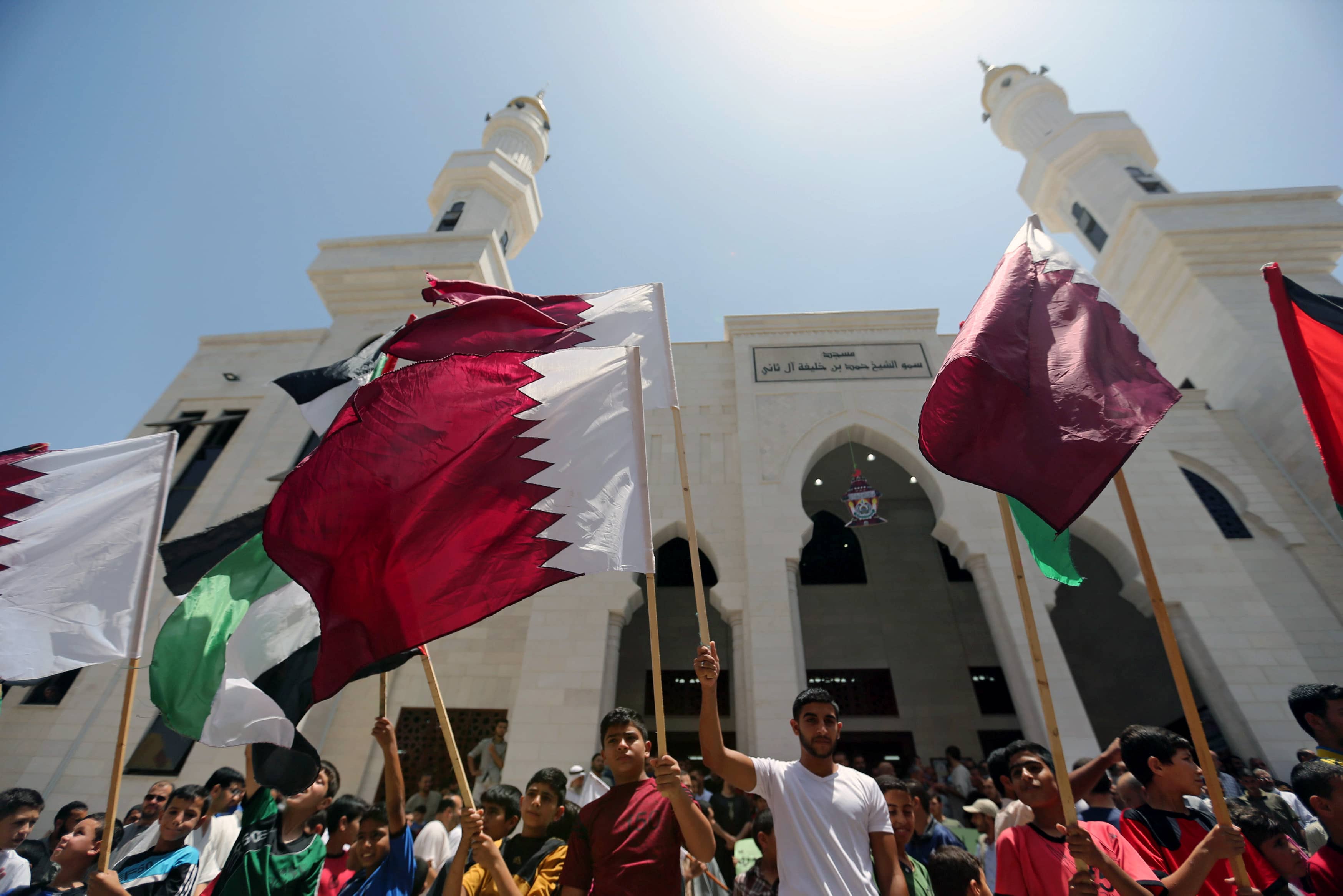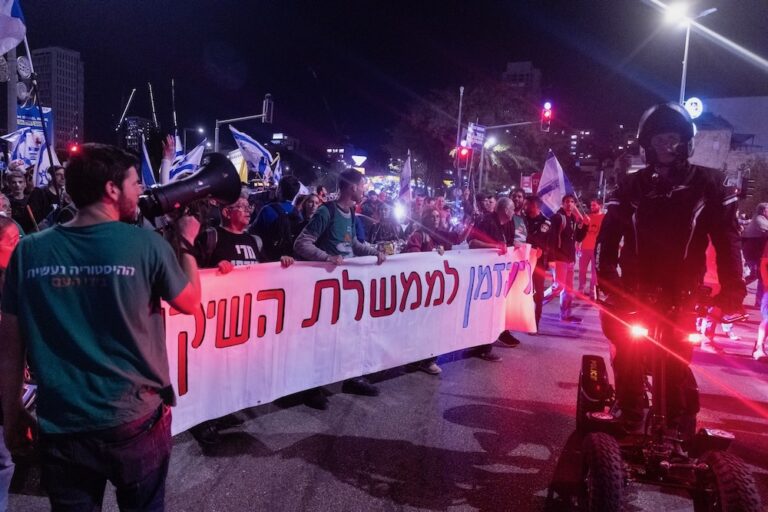This June, the Gulf crisis and its ramifications on the right to free expression across the region dominated the news. Other developments included protests in Morocco and Lebanon, censorship in Egypt and the West Bank, and the loss of lives in Iraq.
The Gulf crisis rages on
Three weeks into the month of June this year, what began as a diplomatic spat between Qatar and other Gulf countries had turned into a full-blown regional crisis – and the right to freedom of expression has been one of its biggest casualties.
It began on 25 May 2017 when authorities in Saudi Arabia, Bahrain, the United Arab Emirates and Egypt blocked access to eight Qatari-funded news websites, allegedly in response to remarks made by Qatar’s Emir criticizing US foreign policy, expressing support for Hamas and Hezbollah, and advocating for better relations with Iran and Israel. Qatar’s government categorically denied the comments.
But relations between Qatar and its fellow Gulf Cooperation Council members have long been strained as a result of conflicting foreign policies. Analysts have claimed the attack on the tiny, oil-rich nation has been years in the making.
A week later, on 5 June, Saudi Arabia and its allies announced they were severing diplomatic ties with Qatar. Qataris in Saudi Arabia were given 14 days to leave the country.
Soon after, Qatari-owned Al Jazeera’s bureau in Riyadh was shut down and its operation license withdrawn. Merely a day later, Jordan, which had chosen to stay out of the crisis until then, followed suit.
The situation further escalated when Qatar’s neighbours threatened to prosecute anyone who speaks favourably of the country. The UAE announced it would imprison for as many as 15 years anyone who expressed sympathy to Qatar. Bahrain‘s Ministry of Interior announced penalties of up to five years’ imprisonment on their website, and a Saudi news agency warned on Twitter that the Saudi government would also imprison for 5 years and fine them up to 3 million riyals (around US$800,000).
On 23 June the crisis reached its crescendo as Saudi Arabia, Egypt, Bahrain, and UAE issued Qatar a list of demands that, if acted upon, would allow for the lifting of diplomatic and economic sanctions imposed the previous month. They gave Qatar a 10 day deadline to meet 13 demands that would basically strip Qatar of its sovereignty.
Two of its most egregious demands are the shutting down of Al Jazeera, its affiliate stations, and all other news outlets that receive Qatari funding, and the handing over of “terrorist figures”, including political opponents and those fleeing discrimination from Saudi Arabia, Bahrain, Egypt and the UAE, to their countries of origin for prosecution. The document does not specify what the countries will do if Qatar doesn’t comply.
Website blocking in Egypt and Palestine
Since joining the Gulf nations in blocking Qatari-affiliated news websites, Egypt seems to have zealously seized the opportunity to deny its citizens their right to access information. So far, according to the Association for Freedom of Thought and Expression, a Cairo-based organisation which has been closely monitoring developments in the country, 118 websites have been rendered inaccessible inside Egypt.
Similarly, the Palestinian Authority in the West Bank blocked access to 11 Palestinian news websites this month. The censored websites include Palestine Now, Palestine Today, the Shehab News Agency, Amameh, Karama Press, and Fateh Voice, among others. Nabhan Khraishi, communications officer for the Palestinian Journalists Syndicate, told the Committee to Protect Journalists that all of the blocked websites are either affiliated with Hamas, which controls the Gaza Strip, or with Mohammad Dahlan, the exiled former head of security in the Gaza Strip.
According to the Palestinian Center for Development and Media Freedoms (MADA), news agencies were not informed of the ban and only learned of the Attorney General’s 15 June decision to have their websites blocked when they contacted their internet service providers to inquire.
Journalists, protesters assaulted in Morocco and Lebanon
In Lebanon, where protesters were peacefully demonstrating against a third extension of parliament’s term on 16 June 2017, Lebanese military personnel beat and kicked protesters excessively. A French freelance journalist was also struck while covering the protest.
Human Rights Watch has called on the military to investigate the incident and make its findings available to the public.
In Morocco‘s Rif region, ongoing social protests that first erupted in October 2016 have been gaining ground since late May. While some violent incidents were reported over the past couple of months, the mass demonstrations have been largely peaceful rendering the government’s response excessively repressive. Early on in June, Nasser Zefzafi, an unemployed man who became a protest leader, was arrested and severely beaten in police custody. He was one of 127 protesters and activists arrested during the police crackdown and is currently being investigated on serious charges, including some that could lead to the death penalty.
Moroccan authorities did not stop at ill-treating and arresting protesters. It went after critical journalists and media outlets as well. On 30 May, Algerian reporter Djamel Alilat was deported after police arrested him as he left a protest he was covering in the Rif region two days earlier.
Moroccan Interior Minister Abdelouafi Laftit filed a criminal defamation suit against Hamid al-Mahdaoui, the editor of the news website Badil, over a 22 May article alleging corruption. The article was published while the minister was visiting the Rif region, where fishmonger Mohsen Fikri was crushed to death in a garbage truck trying to recover fish the police had confiscated from him in October 2016. His death was, and still is, the driver behind Morocco’s recent social protests. In an in-depth piece on recent events in Morocco, the Arabic Network for Human Rights Information (ANHRI) details how violations of freedom of assembly and expression expose the falsity of democratic reforms promised in 2011.
Journalists killed in Mosul, Anbar
As the last phase of the battle for Mosul ensues, international journalists have flown into Iraq to cover it. Tragically, on 19 June, while covering counter-terrorist operations in Ras Al Jadah district, French journalist Stephen Villeneuve and Iraqi-Kurdish journalist Bakhtiar Haddad were killed in an explosion. Swiss journalist Veronique Robert and her French colleague Samuel Forey were also injured in the attack. While Forey’s injuries were slight, Robert later died of hers in a hospital in Paris. The Mosul offensive has been especially testing for reporters since efforts to retake the city from ISIS militants began in October 2016.
In Iraq’s Anbar province, Suhaib al-Heeti, a reporter for the independent Asia Satellite Channel was killed on May 30 in a suicide attack in the northern city of Heet. According to CPJ, he was killed covering a candlelight vigil for the victims of a truck bomb that exploded near a popular ice cream shop in Baghdad the night before. According to an RSF tally, a total of 28 professional and nonprofessional journalists have been killed in Iraq since the start of 2014.



